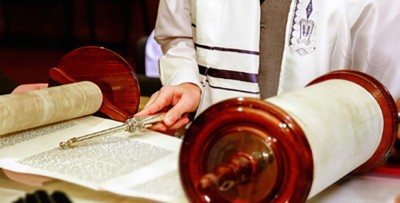
Rav Eliezer Papo writes in his work Chesed La’alafim that one should endeavor to receive an Aliya to the Torah at least once a month, as this is a great source of merit. He also makes another point, which is elaborated upon also by the Aruch Hashuclhan, namely, that all sections in the Torah are equally important, and thus there is no such thing as a "bad" Aliya. While it is true that some communities regard certain Aliyot as a greater honor than others – in our community, for example, "Shishi" (6th) is the most prestigious Aliya – as far as the Biblical text is concerned, every letter is equally sacred. The Rambam writes that the verse which speaks of Mehetabel Bat Matred which may not appear, at first glance, very significant, is no less sacred than the verse, "Anochi Hashem Elokecha" (the first of the Ten Commandments). Likewise, the verse which tells of Timna, the concubine of Eisav’s son, Elifaz, is no less sacred than the verse, "Shema Yisrael Hashem Elokenu Hashem Echad." A Sefer Torah is considered invalid if it is missing a letter from the text of the Ten Commandments or a letter from the relatively unknown list of the names of Eisav’s descendants, because each and every word of the Torah is sacred and the word of G-d. Therefore, a person should never protest or feel slighted if the text of the Aliya he receives does not seem to be especially significant, because every letter of the Torah is significant, and it is a great privilege to recite a Bracha over any section of the Torah. Halachically speaking, it is permissible to give an Aliya to somebody who commits sins and has not repented for them. As long as he does not sin in a flagrant, public fashion – such as if he drives to the synagogue on Shabbat and parks right in front of the building – and he believes in God and the Torah, he may receive an Aliya. Thus, for example, somebody who shaves with a razor – which is forbidden by the Torah – may be given an Aliya. Of course, different congregations follow different rules and guidelines in this regard, and every Rabbi should implement guidelines that are appropriate for his congregation and which preserve the sanctity of the synagogue, the sanctity of the Torah, and the respect and dignity of the congregation.
Summary: It is proper, if possible, to try to get an Aliya to the Torah at least once a month. Every letter of the Torah is sacred, and thus one should not feel slighted if the text of the Aliya he receives seems obscure or unimportant; each and every word and letter is significant, and every Aliya is a great privilege. Strictly speaking, even non-observant Jews may receive Aliyot to the Torah, though every congregation and Rabbi should establish a policy that best suits their community.
By Rabbi Eli Mansour
Is There Such A Thing As A “Bad” Aliya In The Synagogue?
Typography
- Smaller Small Medium Big Bigger
- Default Helvetica Segoe Georgia Times
- Reading Mode




